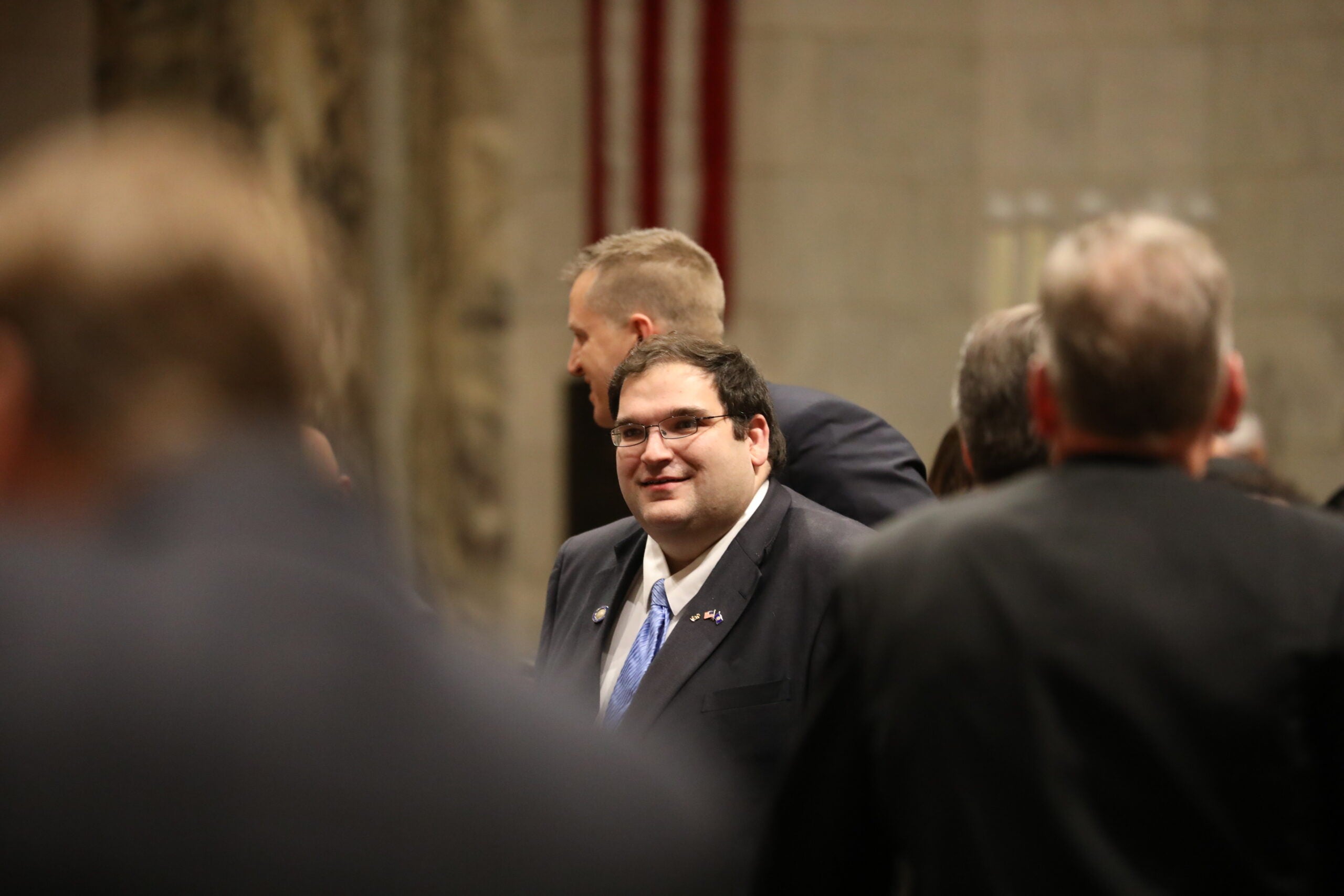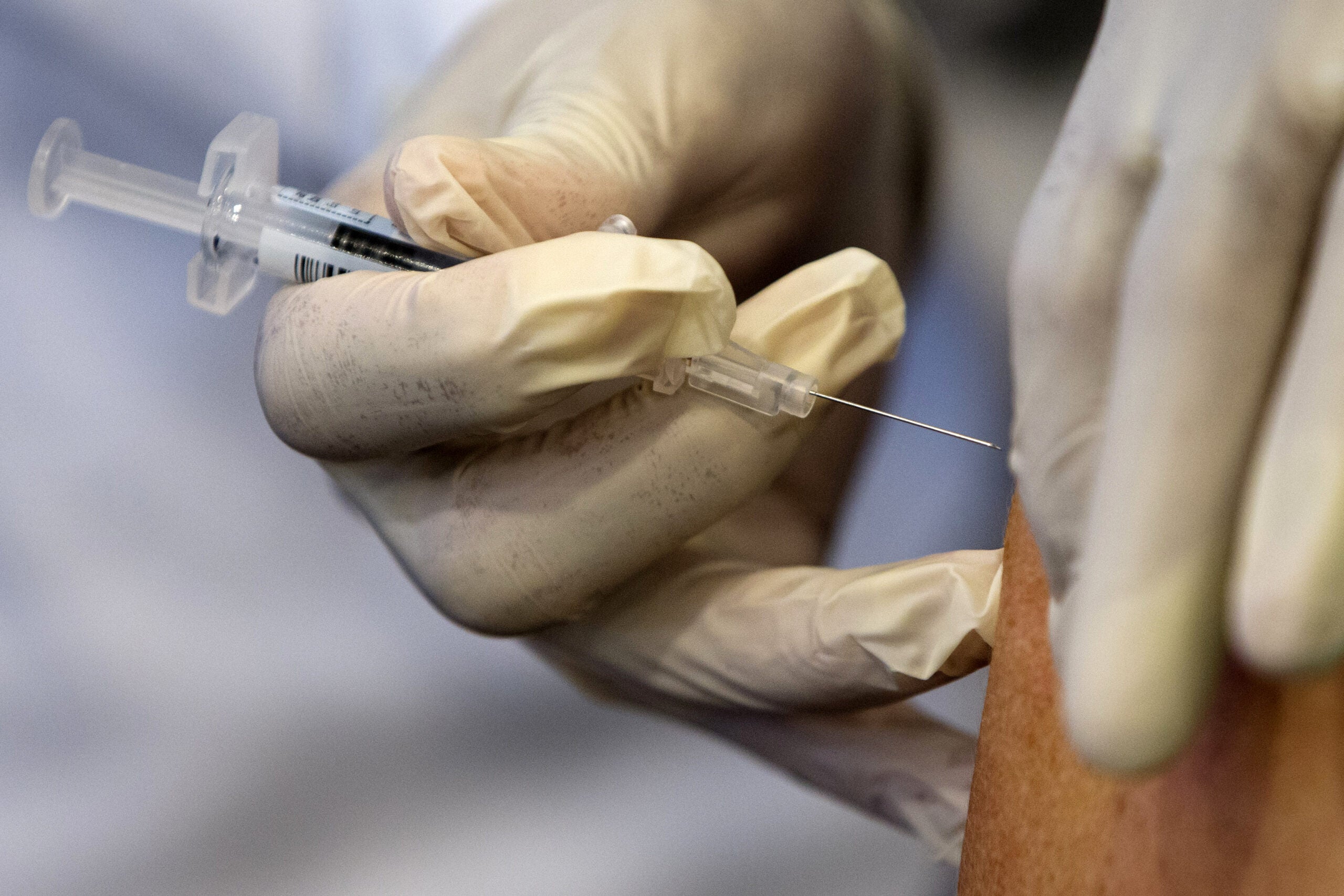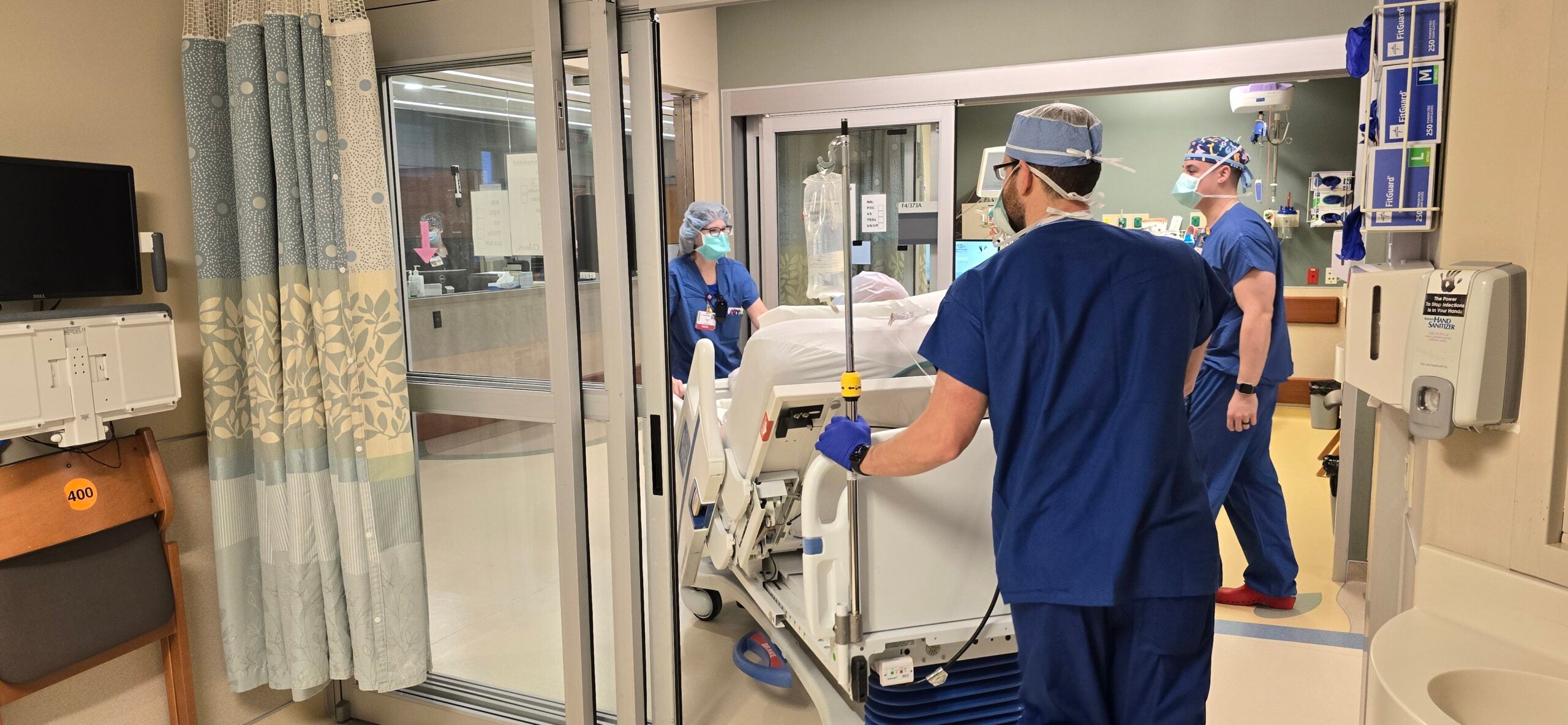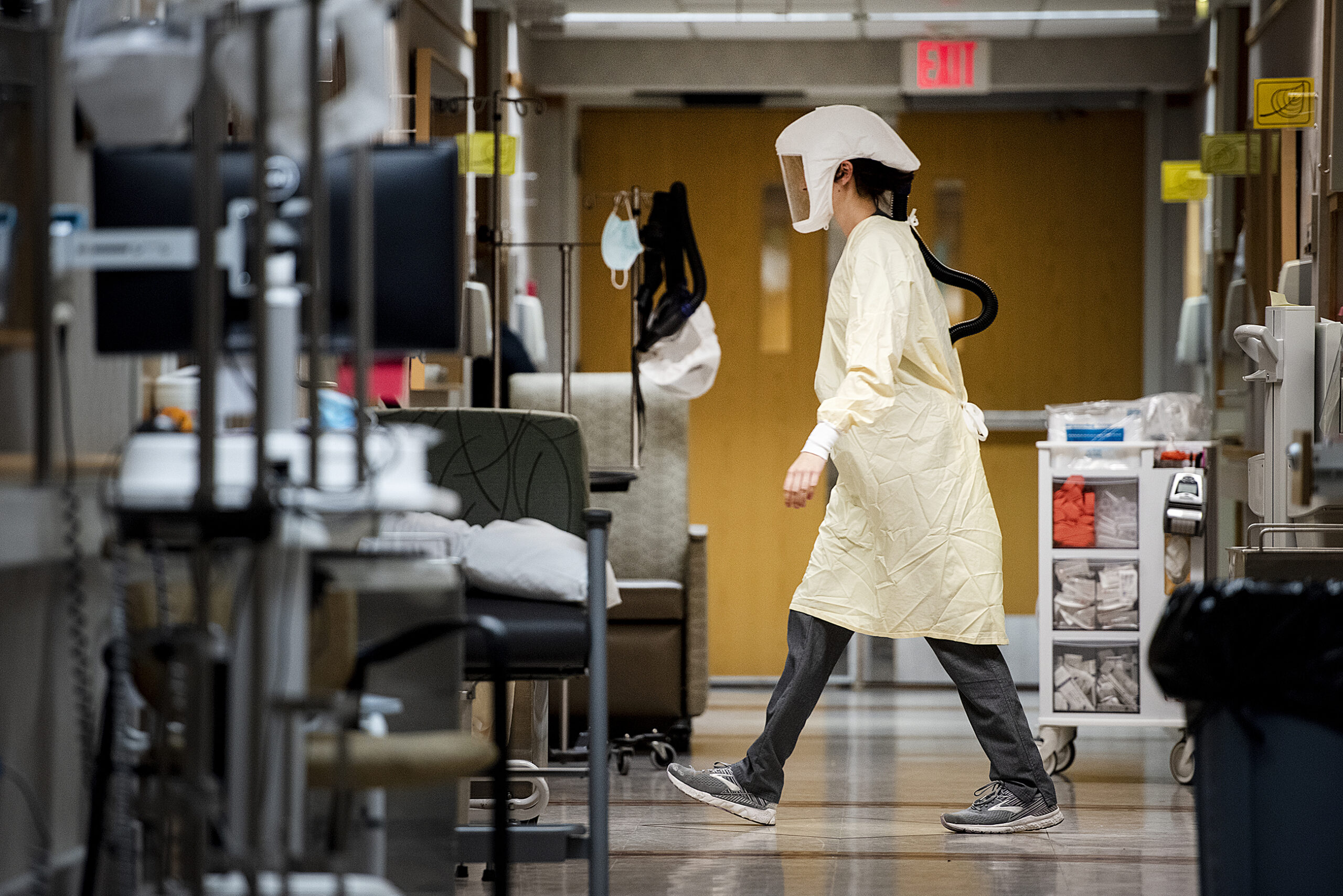After being hospitalized with a severe case of COVID-19, state Sen. André Jacque, R-De Pere, declined to say whether his experience has changed his view on the pandemic and public health measures.
Jacque was hospitalized with COVID-19 in August and was placed on a ventilator while battling the infection. He was released from the hospital in late September.
Prior to his illness, Jacque was a vocal opponent of mask and vaccine mandates related to COVID-19.
News with a little more humanity
WPR’s “Wisconsin Today” newsletter keeps you connected to the state you love without feeling overwhelmed. No paywall. No agenda. No corporate filter.
In an interview with WPR’s “The Morning Show,“ Jacque said Monday his recovery has gone well, but he’s still working to regain his strength through physical therapy.
When asked whether his experience with the disease changed his views on how the state should be battling the pandemic or approaching public health, Jacque said he did not want to comment on COVID-19. But he said he has some “insights” from his time in the hospital.
“I wish I had the opportunity to take monoclonal antibodies and some of the other therapeutics that are otherwise available, but not at that point,” Jacque said.
Monoclonal antibody treatment limits the amount of coronavirus that enters a person’s body, therefore making symptoms milder and decreasing the risk of hospitalization. The therapy gained national attention in October 2020 after it was used by former President Donald Trump during his COVID-19 infection.
Jacque was also asked by “The Morning Show” how an end to the pandemic could be reached if more people in the state don’t get vaccinated.
According to the state Department of Health Services, just over 56 percent of Wisconsin’s total population has completed the COVID-19 vaccine series. That’s lower than the national vaccination rate, which is just under 61 percent, according to the Centers of Disease Control and Prevention.
Jacque said the state should look beyond vaccination rates to the issue of virus mutations and how they could affect vaccine efficacy.
“This is going to be a long-term issue with mutations that occur with this virus or with any virus, if you look at the flu vaccine or all the variants that we’re kind of chasing after right now,” Jacque said. “We have to, I think, focus on what it is that we can do to pull together as opposed to divide ourselves as a community.”
He said two issues where common ground can be found is on addressing a shortage of health care workers and expanding hospital capacity.
Jacque has proposed legislation that would allow recent military veterans to provide limited health care, without a license, under supervision of a physician, physician assistant, podiatrist, registered nurse or advanced practice nurse.
“There are ways that we can get people right now into the health care profession, doing things that are within their training, within their scope. We’re not talking surgery or prescribing drugs or that sort of thing,” Jacque said.
He said hospital staff shortages are part of why Wisconsin health care systems are once again reporting a lack of available bed space.
DHS data show 56 percent of hospitals reported they were at overall peak capacity as of last week. Almost 97 percent of the state’s intensive care unit beds were in use as of Tuesday.
The Wisconsin Hospital Association COVID-19 dashboard reported there were 1,634 COVID-19 patients hospitalized in the state as of Friday. That’s an increase of 177 patients over the previous week.
Wisconsin Public Radio, © Copyright 2026, Board of Regents of the University of Wisconsin System and Wisconsin Educational Communications Board.







